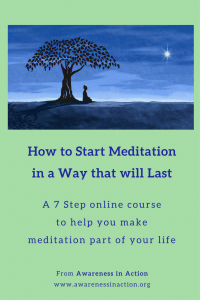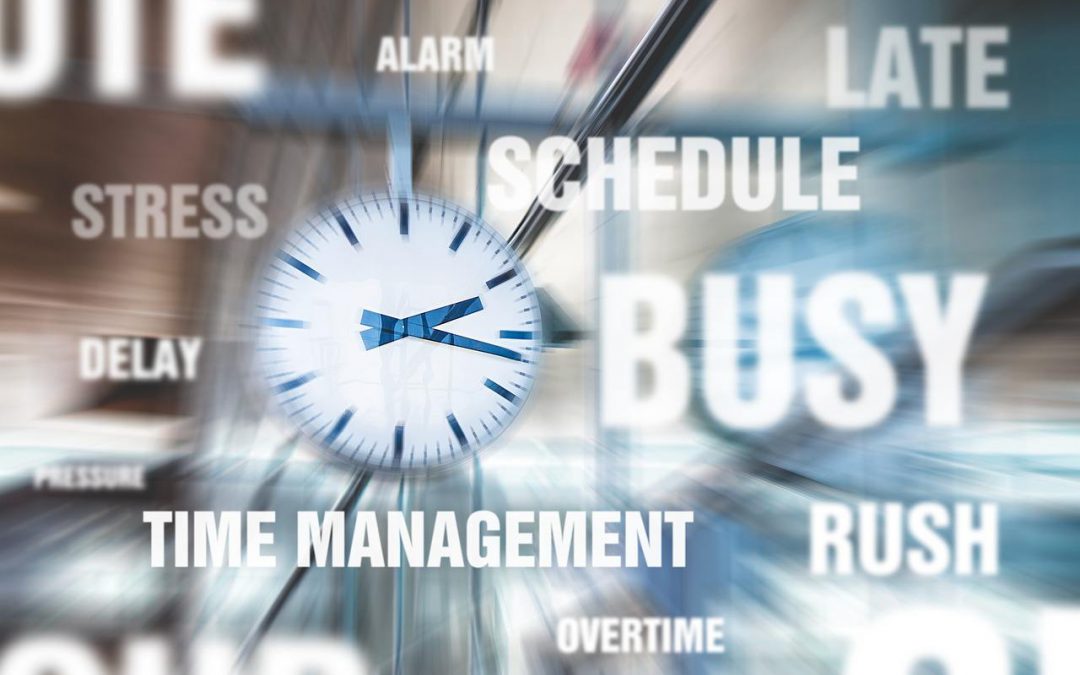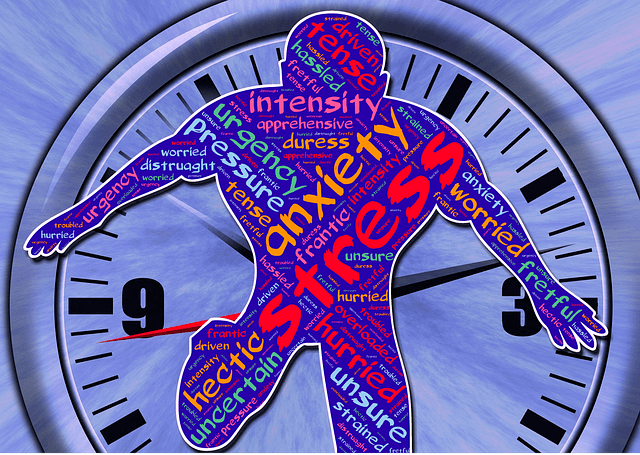
by Maureen Cooper | Sep 13, 2017 | Compassion, Kindness, Meditation, Mindfulness, Relationships, Self-compassion, Stress, Yourself
Are you familiar with the growing popularity of online courses? If you know where to look it is now possible to find a tantalizing variety of learning offered in the form of online courses. Art classes, cookery sessions, language instruction, and all manner of lifestyle topics are now on offer online. It’s an amazing resource!
This year in Awareness in Action we have been delighted to offer our own series of online courses on the topics of self-compassion, working with stress and sustaining your meditation practice. We have several more exciting ideas in the pipeline.
My own exposure to online courses started a few years back when I was asked to facilitate a series of course programmes run by a meditation group in the States. I was immediately sold on the idea when I connected with the people taking the courses and the degree of passion and commitment they brought to their learning. It was this energy that we aim to bring to our own courses in Awareness in Action.
If you have never taken an online course you might have all kinds of assumptions about how they work and how much time they need. In this blog post I want to spell out six inspiring reasons why taking an online course could really work for you—while at the same time being upfront about when they won’t!
Reason 1: the high degree of personal attention each participant receives
We all know how it can be difficult to be heard in a large workshop, where the most confident and articulate people all too easily get the lion’s share of attention. This is not the case with an online course. Each person gets to send in their comments and postings and the facilitator answers each one individually and in depth. When the course facilitator is an expert in their field, this means that every posting becomes a 1-2-1 exchange in which the participant can benefit first-hand from the person who has the answers to their issues. With our courses, you can book SKYPE sessions as an extra if you want to go deeper.
Reason 2: online courses are so accessible
Taking part in an evening class can be a great experience but inevitably there comes an evening when it’s raining, you’ve had a rotten day at work and you just want to go home and have a hot, relaxing bath. Once you’ve missed one session it’s harder to turn up the next week and your participation starts to come unstuck.
This problem simply does not exist with online courses. If you have a good internet connection and a reliable device you can access your course anytime and anywhere. Even if you have to take a work trip, you can still work on your assignment.
Reason 3: online courses help to improve your resumé
Given the fluid nature of the current job market it’s more important than ever to show that you are interested in developing skills that will help you do your job well. The scope of online courses is widening every day and there are many topics to choose from. Even if a course does not include a certificate of completion you can request one at the end of the course and the facilitator will put one together for you that you can include on your cv. This applies equally to younger employees starting out on their career as well as experienced people who want to demonstrate that they wish to keep learning and up-to-date.
Reason 4: being part of a dedicated online community
At the beginning of this piece I mentioned how inspiring I had found it to work with groups of students on online courses. I know of people who have ‘met’ on an online course and arranged to go on to to others so they can stay together as a group. Even now, I am still in touch with people who I have never actually met but who have taken several courses with me.
When you join an online course you have the option to become part of a dedicated group of like-minded people who are interested in some of the things you are interested in. The possibilities for an exchange of views and experiences are endless.
In addition, an online community can act as a support to your individual learning. It’s reassuring to share struggles and insights with people going through the same programme as you are.
Reason 5: online courses are designed to fit into your life
We are all busy people, so we need our learning to come in short, practical modules in order to be able to fit it into our already over-packed schedules.
In Awareness in Action courses, each course is divided into topics and each topic becomes a lesson. However, we go further and break down each lesson into a series of activities, which give the details of each topic. We advise between one and a half and two hours for a lesson. If you find you don’t have that much time to sit with the course in one go, then you have the option to cover a number of activities depending on the time you have available. In that way, you can keep the thread of the course and progress at your own pace.
Reason 6: online courses are great value for money
Given all this, plus the fact that for many online courses you have access to the materials for as long as you wish, their cost is manageable for a wide range of potential participants. Most courses offer a basic fee, with bonuses for early bird sign up. If you want individual coaching you have the option to sign up for more elaborate packages that include these options.
….. and four things to avoid
Anyone wanting to create a vibrant, enthusiastic online course following is only interested in their participants being inspired, and satisfied by their online experience. Over the least year I have seen a few ways in which people can inadvertently undermine their online experience and end up feeling disappointed. Here are four of them.
-
Avoid signing up when you are about to be extra busy
It’s tempting when you see a course that feels just right for you and you just want to get started—you just want to jump right in and sign up. My advice is to take a moment to check your schedule and make sure this is the right time for you to start a course. If you are about to go on a major work trip, or have a baby, or support your kids through their GCSEs then it might be good to wait until the next time the course is offered. Most courses are offered two, or even three times a year. We might think that we can fit in a few minutes of course time in between—and in the general run of a busy life you can—but when it is something major, you will just be too absorbed in what you have to do. The course will fade to a vague feeling of guilt and fizzle out and that’s a pity.
-
Avoid signing up if you are in crisis
Another time to double check is if you are going through a challenging time. Perhaps you are under a lot of pressure at work and think that a course on mindfulness in the workplace is just what you need. Or you have been involved in a big run-in with your boss and you want to take a course on self-compassion to help you regain your equilibrium. If you are ready, then that is fine and the course could help you get through what you are dealing with in a constructive way. Just check that you are not still too involved in the challenge and having to give a lot of energy to managing it. The risk here is that course will come to seem like a possible lifeline that you are just too stressed and worried to access. Then you will have a wistful sense that you have lost out again and this will add to your sense of crisis.
-
Avoid riding on someone else’s inspiration
Last January one of my courses was advertised at a New Year’s Meditation retreat and I was delighted to see several people sign up. Just as the date for registration passed I received an urgent email from someone who had just got home from the retreat and wanted to sign up with her friends, ‘to keep the inspiration going’ she said. Wanting to help I made the necessary changes to the registration process and she signed up for one of the more expensive coaching options. She managed the first few lessons and one of her allocated Skype sessions but then it was time to go back to work. In spite of my best efforts to keep her connected and to allow her extra time to work with the materials her participation became more sporadic and soon fell away altogether.
I realized that she had been caught up in the enthusiasm of the retreat group for the online course and had not really made her own choice to commit to the material. It’s a shame, because she will be much less enthusiastic to sign up for another course after this experience.
-
Avoid signing up for more than one course at a time
Occasionally I come across what I call a ‘professional course-taker’—someone who signs up for everything you have on offer and then does not complete anything fully. This type of person might also have signed up for your courses and courses from other providers at the same time. It’s wonderful to have so much enthusiasm but generally it is hard to convert into quality learning on any of the chosen courses. As has already been said—most course programmes run tow or three times a year, so there is plenty of time to cover all the ground that you wish to cover.
Perhaps some of you reading this blog have already got experience of taking online courses. If so, it would be great to hear how you benefitted and if you have any more ‘things to avoid’ to add to my list. Do be in touch and share your experience.

If you are interested to try an online course, we have a meditation course for beginners running continuously—How To Start Meditation in a Way That Will Last.
You can sign up any time. The link is here

by Maureen Cooper | Jul 29, 2017 | Compassion, Kindness, Meditation, Mindfulness, Relationships, Yourself
A few weeks ago, my partner and I were out with some friends for dinner. We had not seen them for a while and we had a lot to talk about. On top of that, one of the friends was going through a bit of a tough time and needed support—which we happy to give, except that the people at the table behind us were celebrating and extremely noisy. It was one of those weird situations where you found yourself raising your voice to talk about delicate things. I found myself beginning to experience what I can only describe as ‘restaurant rage’.
I was focused on our small group at our table and found myself glancing over my shoulder in increasing irritation at the thoughtlessness of the noisy crowd behind me. It seemed to be that they were inconsiderate and thoughtless, with no care for the enjoyment of the other diners.
Eventually, after a while, a sense of doubt set in. How was my behaviour any different? I wanted things quiet and peaceful so my friends and I could have the environment we wanted. The celebrators wanted to have a good time. I wanted things one way and they wanted them another. Why did I assume that my way was best? Why did I feel entitled to it?
It got me thinking about how our default position is so often to want others to change to fit in with how we want things to be. It is so much harder to change our own behaviour to be able to manage the challenging situation more effectively.
What follows are my ideas about how to manage a situation like this next time it comes up. I live in a city; noisy restaurants are common—so turning restaurant rage into kindness seems like a good investment.
Take care of your irritation
If you are going to change the way you are reacting you need to give yourself some time to realise you are irritated and then to calm down. I usually find a few long, slow breaths will do it. No-one needs to notice—you can just rest your attention on your breath for a few moments until you feel yourself coming back.
The next thing is to get a handle on what is actually happening, rather than what you imagine is happening. In my dinner example, the party at the nearby table were not nasty people on a mission to spoil my evening—there just wanted to enjoy themselves.
With this perspective, it’s easier to remember that it’s not all about you. You have the right to want things to go the way you wish but then so does everyone else. Sometimes things go your way, sometimes they go another person’s way. There’s not a lot we can do to change that and getting irritated about it just makes you miserable.
Pay attention to the sound without the storyline
It’s possible to use sound as a support for meditation. Of course, if you are in a restaurant you might not want to go off into a corner for a meditation session but you can still use the principle. Just notice the sounds around you, without judging and without building a storyline about them. You could call it a Teflon relation to sound—just notice it with your full attention but without commentary. Going back again to my restaurant example—I immediately made a story about my friend and I needing quiet and the people nearby ruining it with their noise. Thinking back, it’s quite likely they were not even particularly aware of us.
We relate to the world through our senses but we do have a choice as to how we are with the information they provide. We don’t always have to react.
If you find it hard to make meditation a regular part of your life, remember that yoga can also help you to find some inner peace. Yoga is a way to relax, unwind, and become one with everything around you. It can help you to develop resilience in the same way that meditation can.
Enjoy other people’s pleasure
When you get annoyed with the behaviour of other people your stress levels rise and you feel uncomfortable. In the restaurant, I could feel myself getting tight with trying to block out the noisy table.
A totally different approach is to notice joy when it is happening around you and to allow it to nourish you.
This might involve dropping your own agenda and simply opening to the enjoyment of others. It could mean that instead of protecting yourself, you allow yourself to open to the happiness of other people. It does not have to be your happiness but it can lift your heart just the same.
Always wish them well
The last of these remedies for restaurant rage is wishing people wellbeing and happiness. You may have heard of Loving Kindness Meditation. It’s a meditation focused on wishing happiness and wellbeing for yourself, for people close to you, for people you do not know so well and even for people you find challenging.
Even if you are not familiar with the whole meditation, you can still focus on a person, or group of people and in your mind, say something like, May you be happy, may you be well. I find it a great exercise to do when I am in crowded places and there are many people. It brings me a feeling of ease.
Do you have any tips for turning rage into kindness in city life? If you do please add them in the comments section.

by Maureen Cooper | Jun 23, 2017 | Kindness, Mindfulness, Work
The evidence for being kind at work
For some time scientific research has been making the case for being kind at work. Now, increasingly work-based studies are also encouraging making kindness a conscious part of any workplace culture.
The science shows that being kind can improve heart function, lower blood pressure, slow aging and strengthen our immune systems. The author and scientist, David R. Hamilton explains that through the production of the hormone, oxytocin and the neurotransmitter, serotonin our levels of wellbeing are raised. Anxiety, stress and depression can all be reduced through preforming genuine acts of kindness. In his ground-breaking book, The Healing Power of Doing Good, Allan Luks documented the good feeling that you get from helping others and which is now referred to as the Helpers’ High.
Being kind at work builds on all these health benefits but goes further. Because kindness nurtures our instinct to connect, it helps to build better relationships and produce more effective teamwork. Whereas negativity tends to limit our scope and bring us down, kindness inspires and elevates us. It is also a key to successful innovation because people feel heard and valued and less afraid to suggest new and interesting ideas.
So why is kindness not part of every training programme and top of every staff development initiative? The answer is that although all the evidence points to its effectiveness, we still feel that being actively kind at work will leave us over-exposed and vulnerable.
A personal story
Last week I had to go along for my quarterly check-up with the rheumatology consultant. Over the years, I have had a series of doctors helping me. This was my second appointment with this new doctor and the extraordinary thing was that I came away feeling better than when I went in. There had not been any break-through, or outstanding good news but I felt heard, respected, seen and understood. The doctor had been alert, well-informed, and fully aware—and she had been kind. Her kindness was empathic but not sticky; practical but warm and most of all, she saw me as another human being.
It got me thinking about why we are so cautious about being kind at work. I came up with five reasons.
-
We are not always present and aware
In my story with the doctor I mentioned that she was alert and fully aware. In my experience, when people are operating from a sense of awareness, they see themselves and other people, as well as the situation they find themselves with more clarity. This gives a sense of confidence which makes showing kindness easier.
The thing is that we are not always present and aware. Research carried out at Harvard University in 2010 shows that for almost 47% of our waking hours we are thinking about something different to what we are doing. Our tendency for our minds to wander away undermines our ability to be fully present and tends to muddy our view of what we are doing, and how we are doing it.
Meditation is one of the most effective ways of working with our minds and increasing our awareness.
-
Stress narrows our focus
Although our brains are hard-wired for kindness, these impulses can get blocked when we are over-focused on ourselves. The pressure of the daily round at work can increase our stress levels and make this tendency worse.
When we are stressed and overwhelmed at work, then we tend to operate on survival mode. This means that we focus on managing what we need to do to get through each day. Our focus narrows and we are not inspired to reach out to others, or to try and see things from a different perspective.
It is very hard to inspire a culture of kindness in a workplace where people are overwhelmed and burnt-out.
-
There is often insufficient leadership culture to support kindness
It would be hard to over-state the importance of a leadership in building a culture of kindness in a workplace. Jonathan Haidt has researched something he calls elevation, or a heightened sense of wellbeing. Elevation happens when we see someone being kind to someone else—we do not even need to be involved ourselves. When a leader is fair, supportive and interested in his/her team then his/her employees experienced an increase in wellbeing. Remember that the actions of a leader are magnified by all the people they are responsible for. Their every action takes on additional importance. An ethical and people-focused boss who takes time to get to know people and their concerns will instil a greater sense of loyalty and commitment in the people they manage. In addition, people will be more likely to be kind and supportive of others. The knock-on effect is powerful.
-
We think we don’t have time for kindness
We can think that being kind at work is going to take extra time and effort and that there is not enough space for it at work.
A study carried out at Princeton Theological Seminary tells an interesting story. A group of divinity students were told they were going to deliver a practice sermon. Half the students were given the topic of the Good Samaritan and the other were given random topics. One by one they were told to go and deliver their sermon—some were told to hurry, others were told they were late, a third group was allowed to go at their own pace. As they went from one building to another they passed a person (an actor) lying on the floor in distress and calling for help. More than 60% of the students failed to stop and help—whether they were going to speak on the parable of the Good Samaritan or not. The deciding factor in whether someone offered to help or not was how much of a hurry they thought they were in. Only 10% of those advised to rush stopped to help, whereas 63% of those who thought they had time stopped to help.
-
We are afraid that kindness will make us vulnerable
All too often we assume a more public persona when we go to work. We keep our ‘private self’ for when we are at home, and with people who care about us. Somehow we worry that kindness will undermine this shield we throw up around our deeper feelings and interests. If we appear vulnerable we are afraid that will leave us exposed. Author and researcher Brené Brown gave one of the most successful TED talks of all time on the Power of Vulnerability.
Judging from the millions of people who have viewed her talk, she touched on something very deep and vital for our wellbeing.
She believes that the ability to be vulnerable is the key to authenticity and to what she calls, wholehearted living. Certainly is a workplace setting, vulnerability is a key to fostering innovation because it helps to create an environment where people feel safe to challenge set ways of thinking and bring in new ideas. It can also improve motivation, teamwork and positive identification with leadership.
Some strategies we can try out straight away
1. Meditation
Meditation helps us to calm down and settle, however busy we are. It brings us back in touch with ourselves and enables us to be more aware of ourselves and other people. From that place, kindness comes naturally.
Here’s a simple meditation that I often use in workshops:
Sit comfortably—relaxed and yet alert
Check in with your body and ease any tight spots
Check in with your mood—how are you feeling?
—Don’t judge, just notice
Become aware of your breathing
—stay with where the sensation is most vivid for you
—rest your mind on your breathing
—notice changes in the breath
—again, don’t judge – just notice
Notice when the mind is not on the breathing
—lightly notice where it has gone
—gently bring it back to the breath
—begin again as if for the first time
Continue for 5, or 10 minutes
2. Just Like Me exercise
This exercise is adapted from an exercise of the same name in the book, Search Inside Yourself. It is a reminder that whatever our differences, fundamentally we are all in the same boat.
- Sit comfortably
- Take a few gentle breaths and then just rest your attention on your breath for a few moments
- When you are settled, bring to mind someone that you work with and think about them in this way:
—this person has a body and mind, just like me
—this person has feelings, emotions and thoughts, just like me
—this person has, at some point in his/her life, been sad, disappointed, angry, hurt, or confused, just like me
—This person has in his/her life experienced physical and emotional pain and suffering, just like me
—this person wishes to be free from suffering and pain, just like me
—this person wishes to be healthy and loved, and to have fulfilling relationships, just like me
This person wishes to be happy, just like me
- So what would you wish for this person?
—I wish for this person to have the strength, the resources, and the emotional and social support to navigate the difficulties in life
—I wish for this person to be free from suffering and pain
—I wish for this person to be happy
—Because this person is a human being, just like me
3. The Kindness Formula
This is an adaptation of a Kindness Formula that we use often in Awareness in Action. It acts as a reminder to be kind.
Make it a habit to do at least three kinds things every day
- one for yourself
- one for someone at work
- one for your work environment
Here are a few suggestions for kind things for someone at work:
- Say good morning and smile
- Make someone a cup of coffee
- Praise someone for a job well done
- Make sure the boss knows when someone does well
- If you see someone about to make a mistake, try and help them out
Here are a few suggestions for kind things for your work environment:
- Avoid spreading rumours about people in your workplace
- Start the week well by bringing in a treat for the team on a Monday
- Start up a meditation group in the lunch hour
- Bring in flowers
- Make sure to wash your coffee cup
4. A suggestion for a team exercise
Have people sit together in pairs for 15 minutes and share with each other something about their life that their colleague would not have known otherwise.
If you have enjoyed this blog and are interested to start a meditation practice of your own, you might like to check out this online course that I offer. You can find out more here


by Maureen Cooper | May 30, 2017 | Kindness, Mindfulness, Stress, Work
Many people that I work with tell me that they have so much to do at work that they cannot manage. They feel overwhelmed, and that there is never enough time. They never get to finish something properly because the next thing has already started. I have one friend whose boss schedules her meetings to happen two at a time—how is she supposed to handle that?
The trouble is that when you work this much it is hard to feel a real satisfaction in what you are doing because everything is moving so fast. This undermines our sense of accomplishment at work, as well as our personal wellbeing. It is also not a sustainable way to work and could all too easily lead to burn-out. It simply does not produce the best results.
So, what can we do about feeling overwhelmed at work?
With yourself
Let’s look first at what we can do about how we are with ourselves—our attitudes and assumptions.
-
Celebrate your capacity
When we are free to work in our own way, we have a tremendous capacity. The trouble comes when we are at work, following someone else’s schedule. If we feel we are being asked to do too much, or work in a way that feels too intense, then we more easily feel stretched and overwhelmed.
This sense that things are not in our control is a major factor in building up stress. It helps if we can find ways that we can take control and being able to freely access our own capacity is one way to do this. So, don’t react to work overload by trying to protect yourself and limiting your own capacity. It’s energizing to connect with your capacity and to celebrate it. If we drop our worries about achieving everything we need to achieve, ironically, we can do so much more.
-
Be inspired
When we can connect with our full capacity then it is a natural step to allow our inspiration to blossom. Can you remember what attracted you to the work you are doing now in the first place? Go back and recall why you wanted your present job. Take a few moments to savor the reasons and then look at how you are working now. Is there any of the previous inspiration that you can inject into your current situation? Has your job evolved from when you started with it? Identify what keeps you doing it and allow those insights to inspire you.
When we get up each morning to go to work, we need reasons that continue to make sense for us. Make sure that you know what your reasons are.
-
Give up trying to be perfect
Let’s face it—there is the work we are asked to do and then there is the way that we do it. Most of us have a lot invested in our working life. It’s where we get to do something that we hope will be of benefit in the world and we want to give of our best. Sadly, that can often mean that we ask way too much of ourselves. It’s one thing to have a demanding boss—at least we can moan about it later—but when it ourselves driving us, that is harder to deal with.
So, in looking at how to deal with overwhelm at work, we need to see that perfectionism is a frustratingly unattainable goal. In fact, we even need to allow ourselves to make mistakes sometimes.
I love this quote from Thomas Edison,
I have not failed. I’ve just found 10,000 ways that won’t work.
A lot of the time we want to be perfect so that people will approve of us and accept us as being worthy of their attention. It tends to come from a place of insecurity. Edison’s approach turns all this on its head—making mistakes is an essential part of learning and growth. Adopting this approach releases a lot of the pressure we are putting on ourselves. We don’t need to add to our stress levels by trying to achieve something that doesn’t exist in the first place.
-
Come home to yourself
We each need to find a way that enables us to find a place of ease with ourselves. When we are too busy and feeling overwhelmed, we tend to be focusing our energy outwards, looking for ways to cope. Having a simple, accessible way connect with ourselves at anytime, anywhere will help us to puncture the feeling of being overwhelmed.
This is what I do—I call it a STOP MOMENT.
Take a few deep breaths
Pay attention to your body—do you have any tight places, are you tired?
Check in on your mood—how are you feeling?
At each stage, just pay attention. Don’t try to change anything. Don’t judge.
Rest your attention on your breath.
Try to keep it there for a few moments.
Continue with what you were doing.
Try doing several of these during the day—especially when you feel busy. It only needs to take a couple of moments but each Stop Moment will help to ease your tension.
With your boss
It will often be our boss that we feel is one the causing us to have such a heavy schedule. Here’s a few ideas of how we can tackle him/her. A lot will depend on what kind of a person our boss is—receptive or dogmatic; open or insecure? Whatever the case, it’s worth trying these simple steps to see if you can improve conditions for yourself.
-
Communicate
You owe to yourself and your boss to communicate as clearly as possible. If we are nervous and afraid of offending then we will be unlikely to give a clear account of how we are experiencing our workload and the effect it is having on our productivity.
If you are already using the strategies listed above to do with working with ourselves, it is going to be easier to find a good place to talk to our boss. To do your job well, you need to be able to say what helps you to achieve at your highest capacity. Maybe your boss won’t listen. Maybe they will think they know better but you need to feel that you have done all you can. If it will help, document your concerns and keep them on file. Who knows when they might come in useful to put your case.
-
Stand your ground
Don’t wait for a crisis to put your position across. The danger is that you will be emotional and reactive and the exchange could easily get heated. If you prepare well and can give examples that support your case, you will have more chance of success
Any attempt to point out something to your boss that they might not want to hear is going to be a challenge. Remember that you are wanting to do your best at work and the suggestions you are making will help to contribute to that in your view. If you can stand your ground with a certain confidence it will make a more convincing case for your boss. Standing your ground does not need to be assertive, it can simply be reasonable and well-argued.
-
Put yourself in their shoes
This is very important. If you can enter the conversation—or series of conversations—with your boss having thought carefully about how things are for them, they will feel less defensive. You will be coming from a place of understanding and they will feel that. We all appear to be very different, with our own individual interests and goals. However, when we scratch the surface we don’t have to look too far to find common ground. We all want things to go well and we don’t want things to get messed up and cause problems. Just as you want to give of your beset at work, so does your boss. Perhaps you have different ways of showing it but deep down you want the same thing.
If you can spend some time reflecting on what your boss is facing and how they might be feeling it help you to broaden your attitude towards them. We all like to be understood and if you can demonstrate some knowledge of the challenges your boss is facing then they will feel more secure in listening to your concerns.
With your team
It’s pretty likely that the team you work with is also feeling overwhelmed at work and challenged by the amount of work that needs to be accomplished. Working together with your colleagues to find ways of easing your joint burden is a good investment. Remember, it’s not just about reducing your own feelings of stress and over-work but creating a more sustainable working environment.
-
Listen
All too often the way we listen is clouded by our own agenda. Recently I came across an article introducing the HEAR system of listening and found it relevant and easy to remember.
Halt whatever you are doing and offer your full attention.
Enjoy a breath as you choose to receive whatever is being communicated to you—wanted or unwanted.
Ask yourself if you really know what they mean and if you don’t, ask for clarification. Instead of making assumptions, bring openness and curiosity to the interaction. You might be surprised at what you discover.
Reflect back to them what you heard. This tells them that you were really listening.
If people feel properly heard it is already a way of cutting through feeling overwhelmed because something in us is reassured by knowing that someone else has really listened to us and understands how we are feeling.
-
Be kind
It’s a funny thing about kindness—we may feel that it is all about reaching out to other people and enabling them to feel better but research shows that kindness benefits ourselves as well. When we show kindness to other we feel better about ourselves and our own wellbeing is enhanced. On top of that—kindness is contagious. If we see other people being kind to each other—even when we are not involved—we also feel better. All too often when we feel under pressure, our expression of kindness goes out of the window. We feel it is just one step too far. The science tells a different story, so however busy you feel, make time for small acts of kindness at work. It will help you as well as the people you are being kind to.
-
Avoid stress addiction
When everyone is very busy and things are tough, it is all too easy to become attached to our own stress as a kind of badge of honour—I must be doing a good job, look how stressed I am!
Some years ago, I worked in a tough inner London school where the challenges were certainly plentiful but the teachers made it all much worse by bonding together over how stressed they were. It became impossible to show happiness with your work because you were considered to be letting the side down, or not trying hard enough.
Stress closes things down and makes it harder to change the situation. Although it is inevitable that we will feel stressed from time to time we can try to maintain a sense of humour about it as well!
With your work environment
We have looked at how to cope with feeling overwhelmed with yourself, with your boss and with your team but let’s finish by taking a few moments by looking at your work environment. Each of us might relate to our work environment as ‘something out there’ that we can do little about—whereas the truth is that each one of us has a big impact on it.
-
Slow things down
It might sound counter-intuitive but when things are moving fast, it helps to slow down a little. It is all too easy to get caught up in the whirl of activity and lose our ground.
-
Breathe
We already mentioned focusing on our breath as a way of settling ourselves when things intense. It is a skillful way of slowing ourselves down without becoming distracted. Simply take a few deep breaths when you feel overwhelmed and then carry on with your activity. It provides a brief moment to regroup.
-
Be in the present
When we are harried and overworked it is all too easy to worry about what we need to do and to keep going back over what we have already done and check that we got it right. Going a little slower, using our breath to enable us to focus both help us to stop ruminating and worrying and to be more in the present moment—which is the only moment we can do anything about.
-
Smile
Remember to smile. Pressure can make us grimace and look severe—whether we feel that way or not. When people see us smiling we appear accessible and they are reassured.
 If you found this blog useful you might like to try this online course
If you found this blog useful you might like to try this online course
How to Make Your Stress Benefit You: an online course that shows how to make the best of your stress.
You can find out all about it here

by Maureen Cooper | May 23, 2017 | Kindness, Mindfulness, Relationships, Work
Most of us need to go to work everyday. We don’t choose who we work with, we have limited control over what we have to do and we’ll get feedback whether we want it or not. It’s a sure thing that we are going to feel frustrated at work from time to time—the question is, how much, and for how long?
Recently I stayed with my sister and her partner who both work full-time (and then some) in high pressure jobs. The first night I was there they got home from work at around 20.00, having left at 08.30 that morning. As soon as they came in the door a few things were very clear—they were exhausted, they were tetchy, they were happy to be home but they were already thinking that in a few hours they would be off again and in the meantime, there were loads of things to see to.
As we ate dinner together and they shared their day I got to hear some of the stories of what they had been dealing with. They included a chronically unsupportive boss, a difficult team member, a week schedule that was handed down rather than negotiated and underlying it all, the relentless busyness and pressure.
This scenario is played out in countless homes every day. When faced with this degree of frustration at work what can we do to manage it?
Here is a list of 8 things that I think could help.
-
Start with yourself
It’s all too easy to forget to take care of yourself when you’re very busy but that’s a shame because the more tired and frazzled you get, the easier it is to let the frustration pile up.
Here’s some quick, simple ways to look after yourself:
- check your breathing—are you breathing fully and deeply?
- find a moment to be alone—even in the loo
- take your break with congenial people
- have a plant at your work-station
- take a look at the sky from time to time
- get a few moments of fresh air
- have a family photo nearby
- make sure you are moving regularly—stretching, walking between activities
- drink water
-
Take STOP Moments
STOP Moments are what I call very short moments of meditation.
This is all you have to do:
Bring your attention home to your body and consciously relax
Check in with your mood and notice any tension
Take a deep breath
Rest your attention on your breath for at least 5 full breaths
Continue to your next activity.
You can spend an extra moment in the washroom and take a STOP Moment.
While you are waiting for a meeting to start, or before (or after) you take a phone call are other good times.
-
Don’t let yourself be pin a cushion
What is the function of a pin cushion? It’s a place where you stick all your pins so they don’t get caught up in everything else and prick you. One of my sister’s team members is quite depressed and that makes him reactive and over-anxious. This means that he gives out a lot to other members of the team. As his manager, my sister is trying to absorb his negativity to protect other members of her team – most of whom are giving him a wide berth. It is exhausting her. She feels like a pin cushion stuck full of pins.
Here’s an exercise she could try to deflect those pins pricks.
Imagine a dark cloud around the person who is hitting out at you
As you breath in, take all the murky cloud into yourself
As you breath out, breath out healing and ease towards the person
You could visualize this as rays of bright light that surround the person, filling them with wellbeing.
Repeat this several times during the day—especially after a difficult encounter.
This exercise works like air conditioning—taking in hot, stuffy air and sending back fresh cool air.
-
Try giving the benefit of the doubt
In listening to my sister and her partner I was struck by how hard the environment is in which they work. Criticism and attack seem to be standard fall-back strategies. Feeling rejected, disrespected and overlooked at work all have a strongly negative effect on our performance. Building connection and a healthy sense of belonging are more conducive to giving our best at work. Rarely are we in a position to change a total work culture but we can take steps to manage our own response to it.
Giving people the benefit of the doubt whenever possible is a good way to soften the impact of a harsh environment. When we are generous with our work colleagues we feel better ourselves. Our own stress response is eased and we enjoy the good feeling of allowing space for other people around us.
-
Avoid porcupines
How many porcupines do you have in your workplace? You know the kind of person—one who is always on the look out for any sign of criticism, always ready to hit back when things don’t go their way. They seem to draw energy from a good scrap.
My brother-in-law has a boss who is a bit like that and he finds it very frustrating. His strategy is to avoid him as much as possible and to choose his battles skilfully. He plans carefully for the occasions when he needs to tackle his boss about an issue and documents the interaction, so there can be no future misunderstanding. It’s extra work and it means that he cannot count on his boss as he would like to but it is helping to minimize nasty exchanges.
-
Hold the bigger picture
It is so important to remember why you are doing what you are doing. Although my sister and her partner find work extremely demanding, they are both driven by a sense of purpose in what they do and it helps them find the courage to deal with the aspects that are so challenging. The bigger picture of their work is a source of inspiration for them.
At a recent workshop that I held on stress in the workplace, one participant shared that he actively hated the product that he was selling. He was not indifferent—he actually used the word, ‘hate’. It’s going to be hard for him to be able to work on his stress in a sustainable way if there is not a coherent bigger picture of what he doing that holds meaning for him.
-
Be the calm at the centre of the storm
One of the most effective ways to work with frustration for me is to invest a lot of effort into maintaining my own sense of calm when everything else feels difficult. I work on not letting the challenges define me and how I am feeling. If you are a meditator, then you already have an excellent way to help with this. For those people who do not meditate so much, then try visualizing a place of space and calm in your heart—like a small sky. Then imagine that all the challenges that you are facing dissolve as they encounter this quiet place—just like weather splashing across the sky but not damaging it.
-
Leave it at the door
When it is time to leave work, start the process of letting go of the worries and frustrations of the day. You are not going to be able to do anything about them until tomorrow, so it is a shame to take them home with you. Use the journey home to process the day and prepare for your evening. If it helps, have a simple ritual when you arrive home—like taking off your shoes at the door—which symbolizes for you that you are putting aside the difficulties of the day and turning your attention to your own personal time.

If you found this post helpful, you could look into my recent online course,
Nine Ways to Cope Better with Your Work Frustration
You can check it out here

by Maureen Cooper | Mar 31, 2017 | Mindfulness, Self-compassion, Yourself
My recent self-compassionate experience
It was in Barcelona a few weeks ago, that I got a direct lesson on the importance of mindfulness in supporting being self-compassionate. I was there to give a workshop on transforming stress and it was on the second day, after lunch, that I got a choking fit. I had hurried back from lunch and was slightly hyper because I was trying to lift the everyone-wants-a-siesta energy. I took a sip of water and it just went completely wrong. It is easy for me to choke and I am only too aware that if it goes really badly, then it’s possible that I will vomit. Not something any workshop facilitator is looking to do!
I was there to give a workshop on transforming stress and it was on the second day, after lunch, that I got a choking fit. I had hurried back from lunch and was slightly hyper because I was trying to lift the everyone-wants-a-siesta energy. I took a sip of water and it just went completely wrong. It is easy for me to choke and I am only too aware that if it goes really badly, then it’s possible that I will vomit. Not something any workshop facilitator is looking to do!
At first I tried to fight it and just carry on. Then it occurred to me to excuse myself to the bathroom but then people would have come after me and the workshop could unravel. There were a few moments where I just pretended that I wasn’t there but of course that didn’t work either. So, I gave up and just spluttered on until I could find a place to settle my breathing and take a cough sweet. Things slowly settled.
The three elements of self-compassion
Looking at the group I saw a sea of worried, slightly anxious faces. Something needed to be done. As it happens I had been starting to explain the three elements of self-compassion—self-kindness, as an antidote to self-criticism stemming from the fight response; common humanity, as an antidote to self-isolation stemming from the flight response, and mindfulness, as an antidote to self-absorption stemming from the freeze response. I realized that I had already run through the whole fight-flight-freeze stress response in myself, so I decided to try and use what had happened to explain the antidotes and how they work.
Self-kindness came in as allowing myself to acknowledge something unpleasant was happening but not beating myself up about it. It wasn’t my fault. Seeing the concern on the faces of the group reminded me that they knew exactly what I was going through and wanted me to be OK. There was common humanity. However, the basis of the whole thing was that because I could apply mindfulness I was able to keep the whole thing in proportion and not over-react to my predicament. There was no panic—it could all be managed.
Let’s look more closely at how mindfulness supports self-compassion.
5 reasons we need mindfulness for practicing self-compassion
-
To enable us to notice our moments of suffering
From an evolutionary point of view, we are programmed to turn away from anything that threatens us, and to keep focused on staying alive. This is so we can pass on our genes. On an everyday level, this means we put our energy into carrying on with whatever we think needs to be done—which does not give much time for self-care.
Our stress response is built to fight, run away or freeze and wait till the threat passes. So, our tendency is to rage against our suffering, or distract ourselves from it, or hide away and lick our wounds. It is hard for us to simply notice pain. This means that we are not always very skilful in knowing how to care for ourselves, especially regarding emotional, pain.
Furthermore, when we are suffering, our tendency is to focus on the failure rather than the pain. If you make a mistake at work, don’t you quickly find yourself feeling stupid, rather than taking a moment to acknowledge how wretched you feel for the mistake in the first place? When you have an argument, aren’t you more likely to spend the moments after it re-running the scenario and trying to see what you could have done differently? How often do you give yourself a moment just to feel the pain of the disagreement?
Mindfulness means being in the present moment and experiencing it fully, as it is. If the present moment is one of suffering, then we taste it fully. By not turning away, we give ourselves a moment to acknowledge what is going on for us and to see what it is we need to do about it.
-
To encourage being non-judgemental
Jon Kabat-Zinn describes mindfulness as being a moment-to–moment, non-judgemental awareness. Let’s look at that idea of being non-judgemental. For much of time we are looking at what goes on around us and dividing it up into stuff we like, and want more of; stuff we don’t like, and wish would go away, and stuff we don’t really care about. When we practice mindfulness, and become present to our experience, there’s an opportunity to be curious and to just notice what is going on. We don’t need to overload our experience with judgments, that tend to narrow things down.
In terms of self-compassion it can mean that we do not go straight into the monologue of our critical voice, telling us how we are not getting it right and falling behind. We can pay attention, rather than berate ourselves. This gives us a chance to get a more balanced view of what is going on and how we want to deal with it.
-
To take the simmer out of our reactions
Our stress response is basically the same as that for any other mammals but we differ in one important way. When an animal has escaped from a threat it faces—say the zebra has escaped from the lion—it quickly settles and returns to quietly grazing. We don’t do this. Our minds keep the threat alive long after it has passed. Think of the last time you had an argument with your boss—didn’t you spend hours afterwards thinking about how it went and what you could have done differently? Perhaps you discussed it with friends?
Our tendency to ruminate and worry and to go over and over things that have upset us, keep us in a constant state of low-grade stress—a kind of simmering stress. In this state it is harder to practice self-kindness, or to remember common humanity. If we are being present to what is happening to us now, not what has already happened, not what might happen shortly, then there is nothing to ruminate about.
Like the zebra—who is focused on grazing on the grass in front of it—we can engage with our present activity wholeheartedly. We don’t need to follow our wandering mind.
-
To have a choice in how we react
When we see how fast our moods and feelings change it’s maybe hard to believe that there is a tiny gap between something happening—an action, and our reaction to it. When we are feeling quite mellow and relaxed we can sometimes sense this gap but when we are worried, or stressed it seems to disappear. For me, self-compassion means using all our resources to work with ourselves in a healthy and constructive way. When we over-react to a situation and have to deal with all that entails, we are setting ourselves up for self-criticism and feeling bad.
With mindfulness, we are engaging with the present moment with our full attention and without judgment. Going from moment to moment with curiosity enables us to have a more balanced view of things as they occur. This makes it possible to put space around events and gives us the chance to notice the gap. Then we can have some choice in how we react, rather than simply being dragged along by our emotions and moods.
Often when we calm down after something has upset us, and look back at what has taken place, we can see that our reactions have encouraged us to exaggerate. Think of how mad you can get at another driver who seems to be cutting across you! Or how frustrated you feel when your internet connection falls away! When we are mindful, we are more able to see things as they are, without exaggeration. We are not trying to prove anything. We are just being with what comes along. So, even if you do over-react to a situation, with mindfulness you can more quickly bring your attention back and settle.
-
To avoid over-identification
Remember, from a self-compassion viewpoint that mindfulness is the antidote to freezing up, which leads to self-absorption. When we are not able to step back as we were discussing in point 4, then our sense of self becomes completely wrapped up in our reaction to what we are dealing with. It can be so easy to be caught up in our own personal soap opera.
Remember a time when you were faced with a big disappointment—someone else got the job you applied for, your relationship broke up or perhaps the holiday you really longed for turned out to be too expensive. A disappointment is a moment of suffering and we need to notice it and take care of ourselves as we work through it. When we over-identify with our reaction, then we deny ourselves the chance to work through it in a way that will enable us to heal. Our reaction becomes the main story, rather than our return to wellbeing.
Mindfulness of the present moment balances out our attention and prevents us from falling into a repeating loop of reaction and disappointment. Then we can apply self-kindness and see our problems in relation to those of other people. Mindfulness fuels self-compassion.

If you found this post helpful you might like to check out my online course, How to be a Good Friend to Yourself
You can find out more here






 If you found this blog useful you might like to try this online course
If you found this blog useful you might like to try this online course 


